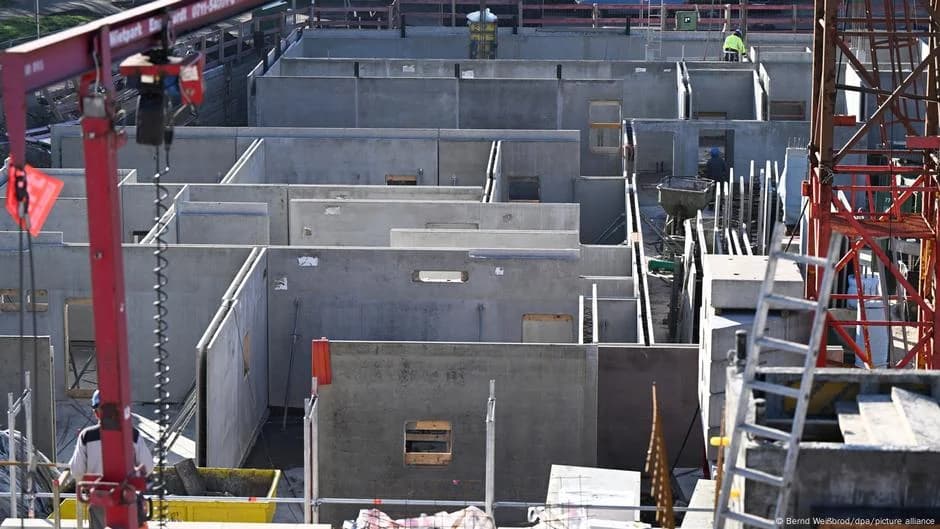Germany's housing crisis has prompted significant government intervention aimed at boosting construction and addressing the severe shortage of affordable housing. This initiative, spearheaded by the new Construction and Housing Minister Verena Hubertz, reflects a growing recognition of housing as a critical social issue. The plans were shared during a public broadcast, emphasizing the urgency of the situation in a country where bureaucratic hurdles often delay construction approvals longer than the actual building process.
The proposed measures include a legislative amendment to the German Building Code, introducing a new paragraph labeled "Bau-Turbo" (construction turbo). This amendment would allow local authorities to expedite the approval process for construction, renovation, and change-of-use projects that deviate from existing regulations, specifically for new residential buildings. If passed, these changes would enable municipalities to automatically approve planning applications after two months unless explicitly vetoed, potentially saving around €2.5 billion annually.
Environmental considerations are a point of contention, with some experts expressing concern that easing planning regulations may lead to the loss of green spaces. Stefan Petzold from the nature conservation association NABU highlighted the importance of these areas for providing cooling during heatwaves. Critics like Matthias Günther of the Pestel Institute argue that while the new legislation could create more bureaucracy, it may not yield immediate results in increasing housing availability.
The construction industry has faced multiple challenges, exacerbated by the ongoing impacts of Russia's invasion of Ukraine. Rising energy prices, inflated material costs, and increased interest rates have all contributed to a stagnant construction market. Tim-Oliver Müller, managing director of the Federal Association of the German Construction Industry (HDB), noted that while the government's plans are welcome, they will not result in an immediate uptick in housing construction.
A significant factor in the housing crisis is the overwhelming demand for affordable homes, particularly in urban areas. More than half of Germany's population lives in rented accommodation, the highest share in the EU, which has led to skyrocketing rents in major cities. Bernard Faller from the Federal Association for Housing and Urban Development (VHW) emphasized that existing tenant protection laws, while robust, hinder mobility for those seeking to relocate, particularly young families.
To tackle these challenges, the new coalition government plans to increase the Construction Ministry's budget for 2025 to €7.4 billion, up from €6.7 billion the previous year. This funding aims to support social housing projects, climate-friendly construction initiatives, and the conversion of commercial areas into residential spaces.
The Federal Institute for Research on Building, Urban Affairs and Spatial Development (BBSR) estimates that Germany requires approximately 320,000 new homes annually until 2030 to meet demand. However, the previous government's commitments fell short, achieving only 251,900 new homes by 2024, a 14.4% decrease from the prior year.
As Germany navigates this complex landscape of housing needs, the proposed "Bau-Turbo" legislation and increased funding signal a proactive approach to addressing the housing crisis. While experts remain cautious about the immediate effectiveness of these measures, the focus on sustainable housing development is a crucial step in mitigating the ongoing challenges faced by the German population.
